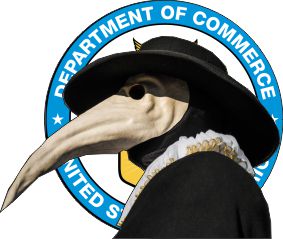ANTIDUMPING INVESTIGATION
US-PETITIONERS ASKED TO DELAY THE PRELIMINARY DETERMINATION OF ANTI-DUMPING SANCTIONS AGAINST HONEY IMPORTED FROM FIVE COUNTRIES
August 18th, 2021
 Versión en Castellano
Versión en Castellano (Espacio Apícola, August 18th, 2021) The petitioners for anti-dumping actions against honey from Argentina, Brazil, India, Ukraine and Vietnam asked the USDOC to postpone the Preliminary Determination, originally scheduled for next September 28. The maximum period to which it could be extended is November 17 (190 days after the date the Secretary began the investigation).
(Espacio Apícola, August 18th, 2021) The petitioners for anti-dumping actions against honey from Argentina, Brazil, India, Ukraine and Vietnam asked the USDOC to postpone the Preliminary Determination, originally scheduled for next September 28. The maximum period to which it could be extended is November 17 (190 days after the date the Secretary began the investigation).Among the arguments they point out: that they have found deficiencies in the initial responses of the investigated companies; "Postponing the Initial Determination will allow the agency to send supplemental and additional questionnaires to clarify its initial responses and accurately determine the magnitude of dumping that occurred during the investigation period"; "In addition, the Department has not yet determined the methodology of the cost of production necessary for many of these investigations" (the original says "had determined" but we think it is a typo).
The request comes in a complex context. North Dakota and other states in the Union are experiencing one of their worst droughts this year with temperatures well above normal, so a significant drop in honey production is expected in the United States. The requested postponement advances on the beginning of the honey harvest in the southern hemisphere, delaying the estimation of the range of values of an uncertain sanction. This preliminary determination is awaited by the entire commercial chain of the investigated countries, but also by many others that await reference values.
Memorandum on third countries
US Department of Commerce issued a memorandum on August 11 as part of the investigations of Argentine companies regarding the sale of raw honey below a fair price in the United States. The memorandum announced that the import prices in the United States will be compared in relation to the sales price to third countries, as a further element of analysis.
The DOC acknowledges that, in the absence of a benchmark of a local honey market for the investigated companies, it is necessary to compare prices with third countries. For this, the discussion was focused on which markets to compare with the US honey market for a honey with "similar characteristics".
To establish the similarity or differentiation of the product initially nominated as "raw honey" the DOC finally considers the following five parameters: color, organic certification, homogenization, filtering and origin. Clearly, the homogenization and filtering escape from the original description of "raw honey" that the petitioners presented as the object of the investigation to, supposedly, differentiate it from the previous demand of 2000 (see Espacio Apícola 45 - November 2000). That one was against honey from Argentina and China, the current one against honey from Argentina, Brazil, India, Ukraine and Vietnam, which in total provide 90% of imported honey in the US.
The two companies selected by the DOC for the investigation were Asociación de Cooperativas Argentinas ACA and Nexco S.A.
According to the DOC, ACA submitted sufficient documentation on its sales to Belgium, France and Japan, proposing that the market with which to compare its sales to the United States should be Belgium. For its part, Nexco submitted sufficient documentation on its sales to Belgium, Germany, Italy, Japan and Spain, proposing that the market with which to compare its sales to the United States should be Germany, as the memorandum also states.
Based on the parameters indicated and according to the volume of honey sold to each market, the DOC decided to accept Nexco's proposal and compare its sales to the United States with sales to Germany. While in the case of ACA, the DOC rejected ACA's proposal and will compare its sales to the United States with Japan.
Although sales prices to Japan are generally higher than sales prices to the United States, the costs would be different as confirmed to us by a relevant source from the cooperative.
The different honey standards for chemical residue acceptance in the long debates on the description of "raw honey" is strikly absent up to now. Not only antibiotics or acaricides for beekeeping use are considered on it also agrochemicals or substances from the environment as pyrrolizidine (PA), glyphosate or GMO pollen to point just a few substances mentioned by the news in recent years with different tolerance criteria wich result in different price of honeys even the inability to access certain markets. These are typical honey conditions prior to any technological homogenization or filtering process.
In the same memorandum, the DOC rejected as unfounded a series of allegations made by the petitioners: "We find that the petitioners' allegations that ACA honey imported by Belgium is re-exported is unfounded"; "We find that the petitioners did not send information regarding the quality of imported Chinese honey in Belgium -as in Germany-, therefore there is no record of evidence that allows us to affirm that the Belgian market -neither German market- are influenced by the (stated) low quality of Chinese honey."
Investigation of producers and middlemans
On the other hand, Nexco and ACA presented their five most important middlemans to answer the questionnaire sent by the DOC this Monday. This questionnaire, to which some beekeepers must also respond, asks for a detailed cost analysis and monthly cash movements during the period of investigation (POI) established for honeys from Argentina between April 1st 2020 to March 31th 2021.
Follow this thread here
Fernando Esteban
Information generated by "Espacio Apícola" the Argentine Beekeepers' Magazine apicultura.com.ar

